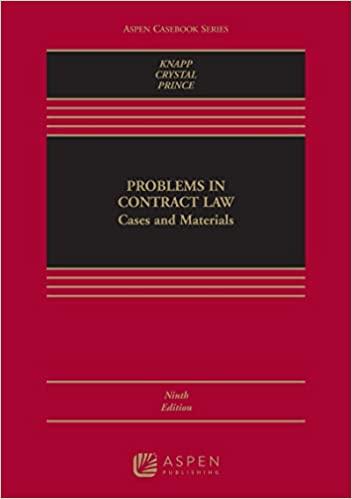Question
Three years ago, Osei left his country of nationality to work in Peru. He obtained permanent resident status there one year later. When Osei returned
Three years ago, Osei left his country of nationality to work in Peru. He obtained permanent resident status there one year later. When Osei returned to his country of nationality, he faced persecutory treatment from the authorities due to a recent civil riot against the majority ethnic group (Osei is a member of the majority ethnic group). Adjei is now claiming refugee protection in Canada. Would his claim be excluded under Article 1E of the Refugee Convention?
- Yes, because Osei had permanent resident status in Peru and so it is now his country of habitual residence.
- Osei has to be in Peru before he can make his claim for refugee protection.
- No, because Osei has left Peru before his refugee claim.
- Maybe, it depends if Osei's permanent resident status could have led to a citizenship in Peru.
Louis fears persecution from religious fundamentalists for his sexual orientation. When he sought protection from the police, they brushed him off because they did not want to help a "gay man". Which of the following is true about state protection?
- Louis would be able to satisfy the requirement that his home country is unwilling and unable to protect him.
- The state's failure to protect when motivated by a Convention ground can amount to persecutory treatment
- Where agents of the state are themselves the source of persecution, the presumption of state protection can be rebutted without Louis exhausting all avenues of recourse in the country
- All statements are correct
Before arriving in Canada and pursuing a refugee protection claim, your client Zhang spent 6 months in France after fleeing his home country. He did not claim refugee protectionas he was figuring out his next steps. Would this 6 month period be considered a delay, and hence, Zhang's claim would fail due to a lack subjective fear of persecution?
- Yes, when claimants do not seek protection immediately, it shows they lack subjective fear of persecution
- Maybe, delay is not determinative, but is a relevant factor for the decision-maker to consider. If there is no satisfactory explanation for the delay, it can be fatal to the claim
- No, there is no evidence that Zhang did not fear persecution in those 6 months
- Yes, because Zhang could have sought protection in France but did not, which shows a lack of subjective fear of persecution
Step by Step Solution
There are 3 Steps involved in it
Step: 1

Get Instant Access to Expert-Tailored Solutions
See step-by-step solutions with expert insights and AI powered tools for academic success
Step: 2

Step: 3

Ace Your Homework with AI
Get the answers you need in no time with our AI-driven, step-by-step assistance
Get Started


